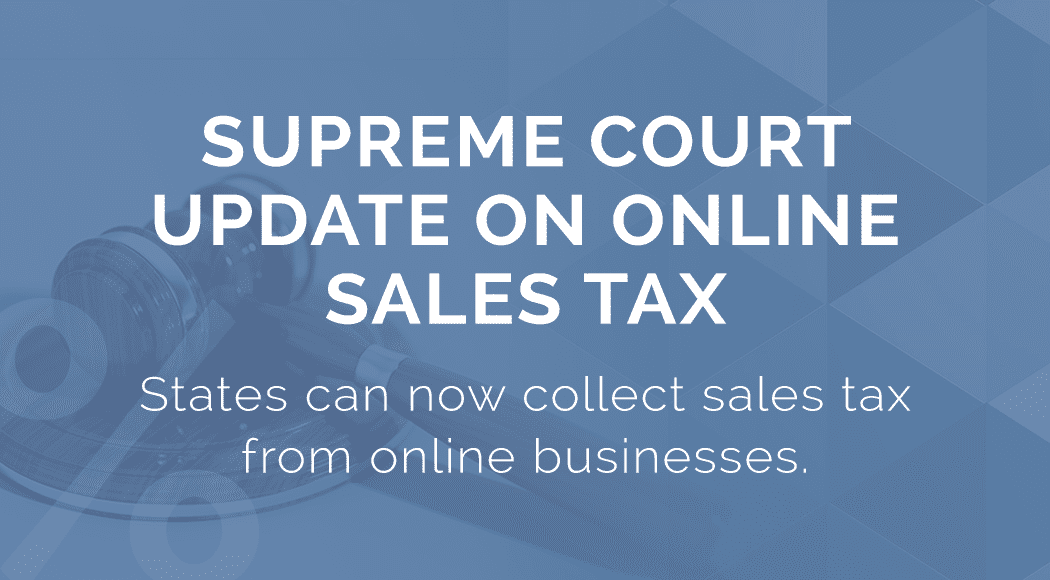
On June 21, 2018, The SCOTUS ruled 5-4 in favor of the states in the landmark South Dakota v.s. Wayfair. This enables states greater power to require out-of-state retailers to collect sales tax from businesses regardless if the retailer/seller has a physical presence in the state.
The U.S. Supreme Court reviewed the facts in the South Dakota v. Wayfair case, where the State was attempting to collect sales tax from an out-of-state retailer. The final ruling allows States to require online retailers to collect sales tax from customers even if there is no physical presence within the state. As a result of the ruling, any business selling to consumers across multiple states will find complying with state sales tax regulations much more difficult.
Prior to this ruling, businesses could rely on a 1992 court case saying that sales tax could not be charged unless a business has a physical presence in that state (Quill Corp vs. North Dakota). For example, an internet based company operating out of NJ wouldn’t be required to collect sales tax on sales to PA customers unless the company had a physical presence in PA. That was before the surge of online sales, and states have been trying since then to find opportunities to collect tax revenue from remote sellers into their state.
In 2016, South Dakota enacted a new law so that it could collect sales tax from out-of-state vendors on purchases made by in-state residents. In other words, it was a new law that went against the Quill decision. Wayfair, Inc., Overstock.com, and Newegg took issue with South Dakota’s new law and decided to fight it out in court. The lower courts in South Dakota ruled in favor of Quill, as did the South Dakota Supreme Court. South Dakota then petitioned the US Supreme Court to overturn the Quill decision and were granted a hearing to argue their position. The final decision sided with South Dakota.
The Wayfair case has changed the rules dramatically. Now, state laws will dictate if sales tax will be collected regardless of whether or not the seller has a physical presence within that state. Of the 50 states, there are about 30 who tax internet sellers without requiring physical presence. The states that currently still require physical presence are as follows: Arizona, Hawaii, Idaho, Iowa, Florida, Maryland, Nebraska, New Mexico, South Carolina, Texas, Utah, Virginia, Wisconsin, and West Virginia. Washington D.C. also requires physical presence in order to be subject to tax. As you can see, each state has its own set of laws on sales tax. So how will this ruling actually impact your business? What steps must you take to stay compliant with your sales tax requirements?
Unfortunately, the Supreme Court’s ruling will make it much more difficult for multi-state businesses to comply with state requirements. If a business has online sales across 40 different states, then that business will have to become well versed in the tax laws with each of those different states. This will require a large investment of time and resources in order to remain compliant. Not to mention, it’s likely that many states may revise their laws to match what South Dakota has done, which will only further increase the complexity.
Alloy Silverstein will keep you updated on future developments regarding this matter. When faced with situations like this, it is best to speak with your tax professional and have them help keep you in compliance. Contact us today for tax planning guidance.

Associate Partner
Ren III provides tax, accounting, and advisory services to a broad range of clients, with a specialty for manufacturers, title insurance companies, and professional service providers.
View Ren III's Bio → Follow @R3CPA on Twitter →